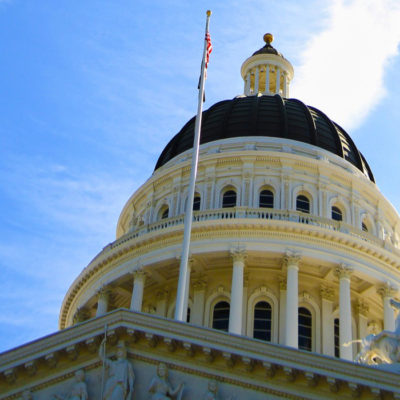This resource is provided by ACSA Partner4Purpose Lozano Smith.
On August 16, 2021, California Governor Newsom signed Executive Order N-12-21 in response to the ongoing COVID-19 pandemic and increased spread of the Delta variant. The Executive Order, among other things, aims to provide the public school system with increased flexibility to hire retired teachers to ensure continuity of education in the face of rising COVID-19 cases.
Generally, among other post-retirement work restrictions, retirees from the California State Teachers’ Retirement System (CalSTRS) have a zero dollar earning limitation during the first 180 days following retirement, also referred to as the “separation from service” requirement. As an exception to this general rule, CalSTRS retirees may only be employed in the California public school system within 180 days of retirement when each of the following requirements are satisfied:
- The retiree has attained normal retirement age;
- The appointment is necessary to fill a critically needed position before 180 days have passed;
- The retiree did not receive a retirement incentive; and
- The retiree is not backfilling their previous position.
Procedurally, to meet this exception, the governing board of the employer must approve the appointment in a public meeting, as reflected in a resolution that includes the nature of employment and findings that all of the above-referenced requirements are satisfied. After the board has adopted the appointment, the employer is required to submit the resolution and all supporting documentation to CalSTRS before the retiree is permitted to work.
Executive Order N-12-21 specifically waives the resolution requirements of the exemption. However, the retiree and the position they are to serve in must still meet the conditions of the separation from service exemption and the employer is still required to submit required documentation to CalSTRS prior to the retiree performing services for the employer if a CalSTRS retiree intends to work within 180 days from their retirement date.
Additionally, all other post-retirement work restrictions applicable to CalSTRS retirees remain in effect. Notably, CalSTRS retirees are subject to earnings limitations and generally may not work in classified positions, except under certain circumstances as a teacher’s aide.
Worth noting, Executive Order N-12-21 also re-suspends the 180-day waiting period for CalPERS retirees who did not receive a retirement incentive. For those CalPERS retirees who received a retirement incentive, the 180- day waiting period still applies. This most recent executive order does not specifically address any other CalPERS retiree work restrictions, however, previous orders have impacted some of these requirements, therefore, employers should conduct further analysis to determine how all relevant orders may impact a CalPERS retiree prior to their hire.









Anne V Spoon
I am a retired special ed teacher. I worked in the state of Calif for 34 years. I have been working as a long term sub for a teacher on maternity leave for Sept and Oct ’22. The teacher on leave is requesting to extend her leave. I would like to continue, however, I feel that there needs to be an incentive for teachers to return from retirement and help with the severe shortage of teachers. When the governor signed the bill to allow for retired teachers to come out of retirement during covid without penalty, the teacher shortage was somewhat remedied. Now, there is still a shortage of teachers, more so in special education. I am suffering at least several “less thans”; no sick leave, higher taxes, and no health coverage. While I am dedicated to the students and their families, I should not be treated less than, as I feel I am because I cannot be placed on a current salary schedule. It has been 5 years since my retirement and I am making what I did 5 years ago while others teachers have moved on the salary schedule. My placement on the salary schedule should be commensurate with teachers that are currently on a contract What can be done about this? I look forward to hearing from you.
Respectfully,
Anne V. Spoon